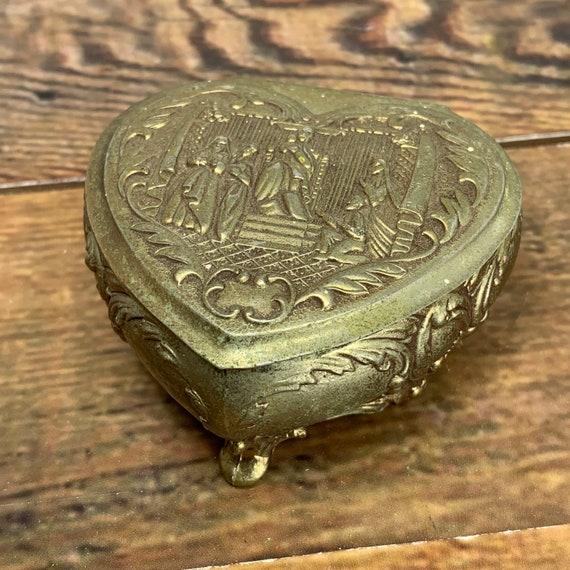In the world of vintage ceramics, few pieces evoke the charm and nostalgia of McCoy Pottery planters. With their rich history dating back to the early 20th century, these planters are more than just functional vessels; they are a celebration of artistry and craftsmanship. Known for their distinctive glazes, whimsical shapes, and intricate designs, McCoy planters have become coveted collectibles that transport us to a time when pottery was not only practical but also a reflection of personal style. As we delve into the enchanting realm of vintage McCoy Pottery planters, we will explore their origins, the stories behind their designs, and the reasons why they continue to capture the hearts of collectors and decorators alike. Join us on a journey through time, where every planter tells a tale of creativity and enduring appeal.
The Allure of McCoy Pottery Planters and Their Vintage Charm
The captivating beauty of McCoy pottery planters lies not only in their exquisite craftsmanship but also in the stories they tell through time. Each piece reflects an era when artisans poured their heart and skill into creating functional art that has transcended generations. With options that range from vibrant glazes to intricate designs, these planters are perfect for anyone wanting to infuse their space with a sense of nostalgia. Collectors and home decorators alike cherish these pieces, often drawn to:
- Unique Patterns: Each design tells a tale, from floral motifs to geometric shapes.
- Vivid Colors: The glazes used in McCoy pottery offer a spectacular array of hues, perfect for any aesthetic.
- Timeless Appeal: Whether displayed indoors or outdoors, these planters complement any style.
The allure of these vintage treasures is further enhanced by their storied past. McCoy pottery’s origins date back to the late 19th century, and its legacy is interwoven with the history of American ceramics. As a testament to their charm, consider the following aspects often celebrated by enthusiasts:Vintage Tudor SubmarinerStrip VintageMust De Cartier Watch Vintage
| Feature | Description |
|---|---|
| Durability | Made from high-quality clay, McCoy pottery pieces are designed to last. |
| Versatility | Perfect for displaying plants, flowers, or even as standalone décor items. |
| Collectibility | With various limited editions, each planter can be a unique addition to a collection. |
Identifying Genuine McCoy Pottery: Tips for Collectors
When delving into the world of McCoy pottery planters, distinguishing genuine pieces from reproductions can be a rewarding yet challenging endeavor. To enhance your collection, consider the following tips that will help you spot authentic McCoy pottery:
- Marks and Signatures: Original McCoy pieces often feature a distinct stamp or signature on the bottom. Look for variations that include “McCoy” along with the production year or numbers.
- Material Quality: Genuine McCoy planters are made from high-quality clay that is durable and slightly textured. Run your fingers over the surface to feel for fine craftsmanship.
- Design Elements: Examine the coloration and glaze. McCoy pottery is known for its vibrant, rich colors and unique glazes that were not commonly replicated.
- Shape and Size: Authentic McCoy planters come in specific shapes and sizes that are distinctive to the brand; familiarize yourself with these characteristics to aid in your identification.
To further assist collectors, here’s a brief overview of popular McCoy planter styles and their noteworthy features:
| Planter Style | Notable Features |
|---|---|
| Bamboo Pattern | Naturalistic design with a textured finish |
| Apple Blossom | Soft pastel colors and floral motifs |
| Wild Rose | Elegant shapes with intricate rose designs |
| Cactus Planter | Unique, whimsical designs ideal for succulents |
Restoration and Care for Vintage McCoy Planters
Restoring vintage McCoy planters requires a gentle approach to preserve their beauty while ensuring longevity. Begin by gently cleaning your planters with a mild soapy solution and a soft cloth to avoid scratching the surface. Avoid harsh chemicals or abrasives, as these can damage the ceramic glaze. Once cleaned, inspect for any chips or cracks. For minor blemishes, a paint touch-up with a matching ceramic paint can work wonders. In cases of significant damage, consider consulting a professional restorer who specializes in ceramics to maintain the planter’s integrity.
Caring for your McCoy planters goes beyond simple cleaning and repairs. Regular maintenance can prolong their life and aesthetics. Here are some essential care tips:
- Keep them out of direct sunlight to prevent fading.
- Use felt pads or coasters when displaying on wooden surfaces to prevent scratches.
- Avoid extreme temperature changes that could lead to cracking.
- Store them in a dry, stable environment when not in use.
For collectors, keeping an inventory table of each planter can help track their condition. Here’s a simple format you might consider:
| Planter Name | Condition | Last Maintained |
|---|---|---|
| Daisy Delight | Excellent | May 2023 |
| Sunflower Burst | Good | March 2023 |
| Vintage Rose | Poor (Needs restoration) | January 2022 |
Styling Your Space with McCoy Planters: Design Ideas
McCoy planters are more than just functional objects; they are pieces of art that can dramatically transform the ambiance of any room. To make the most of these beautiful vintage planters, consider placing them in areas where their unique shapes and colorful glazes can shine. For a bohemian vibe, mix and match planters of various sizes, grouping them on shelves or tables with lush greenery spilling over the edges. Alternatively, for a more polished look, select a few statement pieces in complementary colors and arrange them symmetrically on a console table or as a centerpiece on your dining table.
Incorporating McCoy planters into your décor allows for endless design possibilities. A few innovative ideas to explore include:
- Layering Textures: Set your planters amidst textured fabrics like woven baskets or soft faux fur throws to create depth.
- Contrasting Styles: Blend vintage McCoy planters with modern décor for an eclectic look that celebrates both eras.
- Nature’s Palette: Choose plants that highlight the planter’s glaze, such as deep green ferns to contrast with vibrant colors.
| Planter Type | Best Plant Pairing |
|---|---|
| Hanging Planter | Trailing Ivy |
| Footed Planter | Snake Plant |
| Decorative Bowl | Succulents |
Where to Find and Purchase Authentic McCoy Pottery
When searching for authentic McCoy pottery, particularly vintage planters, the journey can be as rewarding as the find itself. Start by exploring local antique shops and flea markets, where seasoned collectors often showcase unique pieces. These venues provide the opportunity to inspect the pottery in person, allowing you to appreciate the craftsmanship and detail that distinguishes genuine McCoy pottery from reproductions. Additionally, look for estate sales and auctions; often, you might discover hidden gems at prices lower than retail. Joining local antique groups on social media can also connect you with sellers and fellow enthusiasts.
For a broader range, turn your gaze to online platforms. Websites such as eBay, Etsy, and Ruby Lane are treasure troves for vintage McCoy planters. When purchasing online, ensure the seller has a solid reputation and offers detailed photographs, including close-ups of any marks or flaws. Familiarize yourself with the typical markings found on McCoy pieces, which can help verify authenticity. Here’s a quick reference guide for identifying genuine McCoy pottery:
| Feature | Description |
|---|---|
| Markings | Look for “McCoy” stamped on the bottom |
| Glaze Quality | Rich colors with a smooth finish |
| Shape & Design | Distinctive and often botanical-themed |
Understanding the Value: Market Trends for Vintage McCoy Planters
Vintage McCoy planters have captured the hearts of collectors and home décor enthusiasts alike, illustrating a unique intersection of craftsmanship and nostalgia. Their distinctive glazes and designs are a testament to the rich American pottery tradition of the mid-20th century. The value of these pieces is influenced by a variety of factors, such as age, rarity, and condition. Collectors often look for specific characteristics that can elevate the worth of a planter, including:
- Original Finishes: Pieces with their original glaze and without chips or repairs tend to command higher prices.
- Rarity: Certain shapes or colors are produced in limited quantities, making them more desirable.
- Design Features: Unique design elements like handles or lids can add to a planter’s charm and value.
To further understand the market trends, it’s essential to keep an eye on online auction platforms and vintage shops, as they provide significant insight into current pricing dynamics. A simple comparison table can highlight the recent sales of various McCoy planters:
| Planter Type | Recent Sale Price | Condition |
|---|---|---|
| McCoy Butterfly Planter | $45 | Excellent |
| McCoy Pineapple Planter | $75 | Very Good |
| McCoy Art Deco Planter | $120 | Good |
Understanding these market trends not only informs collectors on potential investment values but also helps enthusiasts appreciate the history and artistry behind each piece. With a growing interest in vintage décor, the future of McCoy planters looks bright, making them a worthwhile addition to both collections and homes.
Q&A
Q&A: Mccoy Pottery Planters Vintage
Q: What is McCoy pottery?
A: McCoy pottery refers to a brand of ceramic ware produced by the Nelson McCoy Sanitary Stoneware Company, which began manufacturing in the late 1800s. Known for its distinctive glazes and artful designs, McCoy pottery has become highly collectible, particularly their planters, which combine functionality with vintage charm.
Q: What makes McCoy pottery planters unique?
A: McCoy pottery planters stand out due to their artistic designs, varied shapes, and vibrant glazes. Many pieces showcase whimsical motifs, such as animals or floral patterns, merging practicality with artistry. Their craftsmanship and durability also contribute to their appeal, making them attractive decorative items that withstand the test of time.
Q: Are all McCoy planters vintage?
A: While many McCoy planters are considered vintage, not all pieces qualify. To be classified as vintage, a planter would typically need to be produced before the company ceased large-scale operations in the 1990s, with many of the most sought-after pieces dating from the 1930s through the 1960s.
Q: How can I identify genuine McCoy pottery?
A: Authentic McCoy pottery often features a stamp or marking on the bottom, usually indicating “McCoy” or “Nelson McCoy.” However, some pieces may lack markings due to variations in production methods. Familiarity with known designs, patterns, and color palettes can aid in identifying genuine items. Resources like collectors’ guides and online forums can also provide valuable insight.
Q: What should I consider when purchasing vintage McCoy pottery planters?
A: When buying vintage McCoy planters, consider the condition, rarity, and design. Look for any cracks, chips, or crazing, which may affect the value. Additionally, some designs are more sought after than others, so research current market trends. Certificates of authenticity can further establish provenance and add value.
Q: Where can I find McCoy pottery planters?
A: Vintage McCoy pottery planters can be found at various places, including antique shops, flea markets, estate sales, and online marketplaces like Etsy or eBay. Local auctions may also feature these charming collectibles. Always ensure the reliability of the seller and, if possible, verify the authenticity of the piece before purchasing.
Q: Why are McCoy planters considered collectible?
A: McCoy planters are prized for their unique designs, nostalgic appeal, and the historical significance of the brand. Collectors often seek specific patterns or rare pieces, contributing to their collectibility. The combination of artistry and function within a piece that reflects a bygone era is what many find irresistible about McCoy pottery.
Q: How can I care for my vintage McCoy planters?
A: Caring for vintage McCoy pottery involves gentle cleaning with mild soap and water. Avoid harsh chemicals and abrasive materials to maintain the integrity of the glaze. It’s also essential to avoid harsh temperature changes to prevent any cracking. When displaying, consider keeping them out of direct sunlight to preserve their colors and finish.
Q: What are some popular styles of McCoy pottery planters?
A: Popular styles of McCoy planters include the “apple” and “banana” designs, which feature playful fruit shapes, as well as the classic “hobnail” texture. Others may showcase intricate floral patterns or geometric shapes. Each design reflects the aesthetic sensibilities of the time, making a wide range of styles available for collectors to enjoy.
Q: Can McCoy planters be used for plants, or are they for decoration only?
A: While McCoy planters can certainly be used for live plants, including their original purpose, it is advisable to ensure proper drainage, which may involve using an inner pot or lining to prevent water damage. Many collectors prefer to keep their vintage pieces for decoration, celebrating their artistic value rather than practical use.
Wrapping Up
McCoy Pottery planters stand as timeless treasures, embodying a blend of functional artistry and vintage charm that continues to captivate collectors and gardening enthusiasts alike. Their rich history and distinctive designs not only enrich our spaces but also tell a story of craftsmanship and creativity from a bygone era. Whether you’re a seasoned collector or simply drawn to their aesthetic appeal, these planters offer a unique way to connect with the past while nurturing the beauty of the present. So, as you explore your options in the world of McCoy Pottery, remember that each piece is not just a planter; it’s a piece of history waiting to find its place in your home and garden. Happy hunting!


